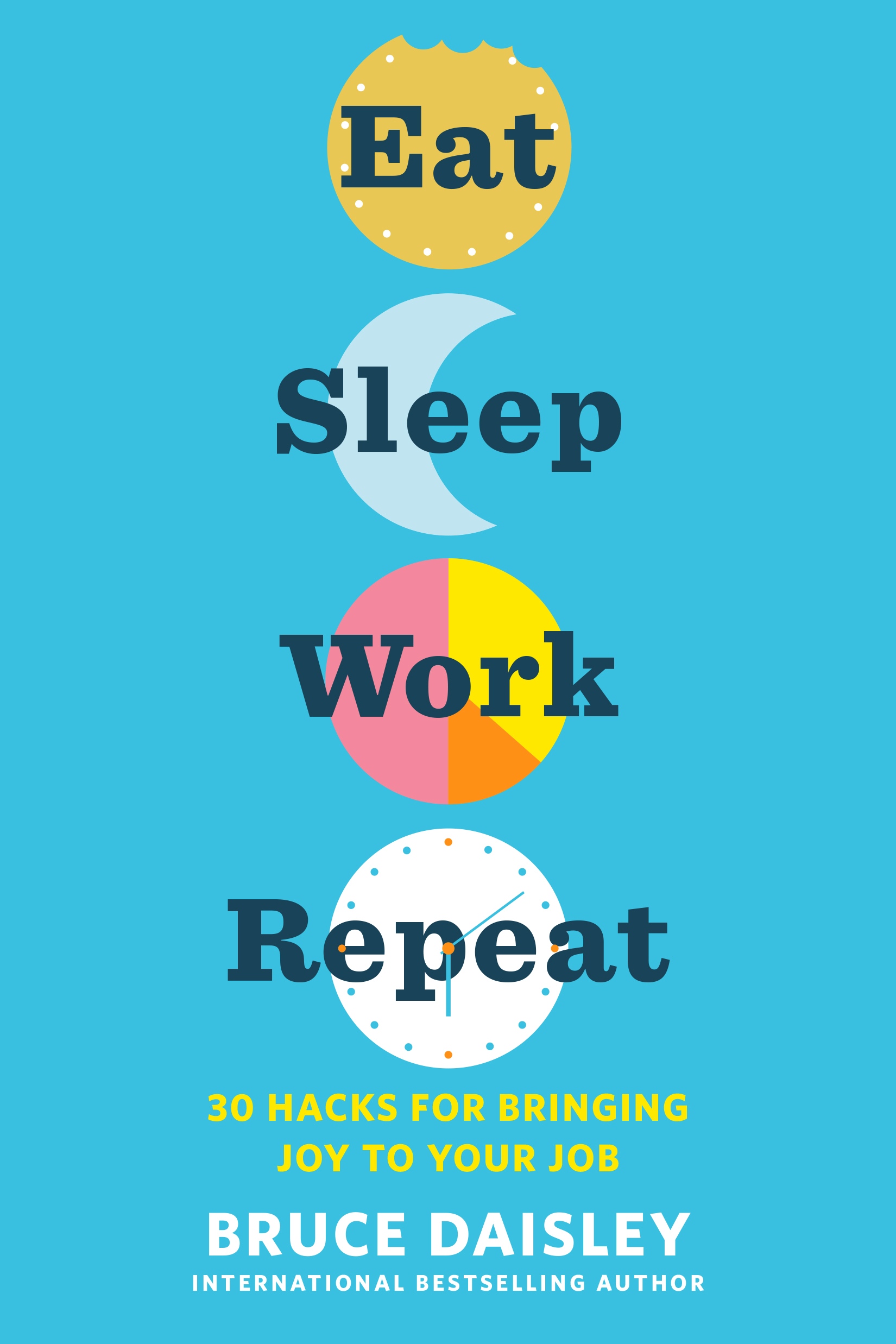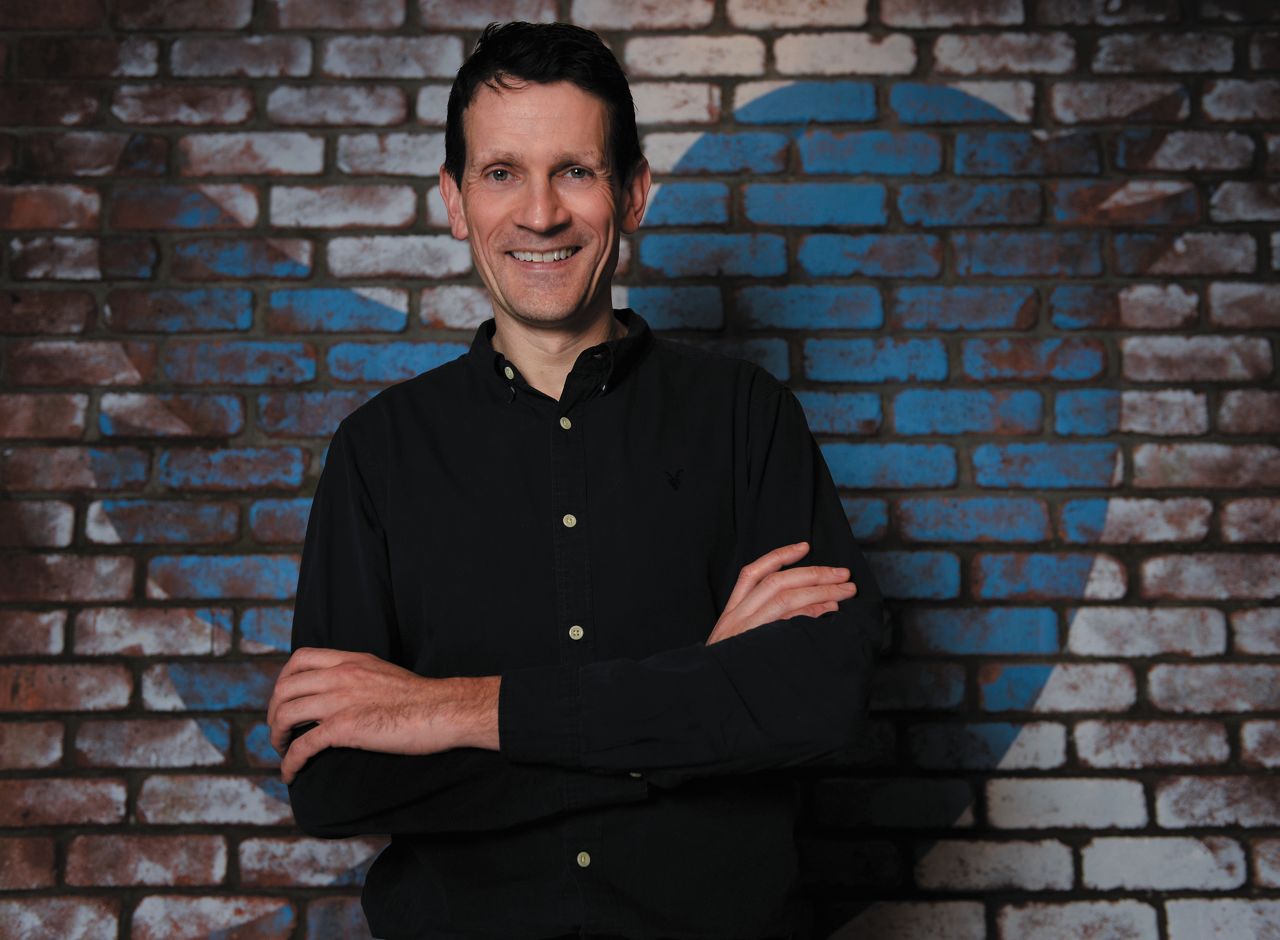Former Twitter exec turned author Bruce Daisley’s first book, Eat Sleep Work Repeat: 30 Hacks for Bringing Joy to Your Job, was released in the United States on Feb. 25; when the date was selected, Daisley had no idea that, in just a few weeks, the country would undergo one of the biggest disruptions to how we work in American history. Nearly overnight, amid a global public-health crisis, millions of Americans were transformed into remote workers, with the added complications of ill-prepared technology support and little or no training on being or managing virtual employees–not to mention, the complexities of spouses and kids at home, “social distancing” and the expected anxieties a quickly unfolding pandemic brings.
While the book explores the issues that have long plagued office settings, many of the challenges addressed–the risk for burnout, lack of creativity, communication struggles, lagging energy levels–are just as salient in today’s disrupted work environment, if not even more so, Daisley says.
 Daisley draws on extensive research in psychology, organizational communication, behavioral science and more to design his 30 guideposts for having happier, healthier and more productive workforces. He also looked to his own career: He spent eight years at Twitter, with the last five leading its business in Europe, the Middle East and Africa; he stepped down in January to focus on research. He has done stints at Google’s YouTube division and at Emap. In 2017, he launched the Eat Sleep Work Repeat podcast on improving work culture, which went on to become Apple’s No. 1 business podcast. His debut book was released in the U.K. in 2019 and was the country’s bestselling business hardback book last year.
Daisley draws on extensive research in psychology, organizational communication, behavioral science and more to design his 30 guideposts for having happier, healthier and more productive workforces. He also looked to his own career: He spent eight years at Twitter, with the last five leading its business in Europe, the Middle East and Africa; he stepped down in January to focus on research. He has done stints at Google’s YouTube division and at Emap. In 2017, he launched the Eat Sleep Work Repeat podcast on improving work culture, which went on to become Apple’s No. 1 business podcast. His debut book was released in the U.K. in 2019 and was the country’s bestselling business hardback book last year.
HRE caught up with Daisley, from his home in London, to hear how he thinks the book’s messages can be adapted for our new future of work.
HRE: First, how are you holding up with today’s current conditions?
HRE: Your book published in the U.S. at the end of February, and it feels like that was an entirely different time for the world of work. When the pandemic started rapidly affecting workplaces, were you concerned at all about the timeliness of the messaging in your book?

Daisley: Thankfully, a lot of the lessons of the book are about the importance of human connection and I think they’ve never felt more timely. I do spend a lot of time in Eat Sleep Work Repeat talking about when remote working seems to energize us, and when it leaves us feeling isolated. Those parts, in particular, have probably never felt more relevant. But yes, certainly discussion on the design of open offices probably just make us nostalgic for a return to the office coffee machine! I dream of being back in an open office eating a tired, wilted sandwich at my desk.
HRE: You’ve noted that “anxious people can’t be creative.” With so much anxiety and stress happening right now, how can we promote creativity?
Daisley: It’s incredibly important for us to ensure that we don’t replace one ill of work with another. Twelve months ago, websites and magazines were filled with writing about burnout. Now, we’re in a different world but the emotional impact upon us can be just as harsh. Many younger workers don’t have the luxury of home offices or gardens where they can take calls. They instead have a daily battle for bandwidth and an attempt to be productive with an existential threat to the health of themselves and their loved ones.
The reason why I championed the research saying that stress kills our capacity to be creative is because it’s all too easy for us to find ourselves dwelling in a state of constant anxious vigilance and then confused as to why we’re not coming up with zingy fresh thoughts like we used to.
The most important thing for us right now is to give ourselves permission and space to switch off from work.
HRE: How do you think some of the suggestions in your book–particularly avoiding weekend email–can be adapted for our newly remote workforces to help them manage the risk of burnout and overwork?
Daisley: It’s never been more important to establish rules of engagement in teams. If you need to care for others or shop or exercise, then a lot of those things will need to be done in daytime. We all need to lead with empathy that the situation we’re in is a singular one that may find us out of the house at 11 a.m.–and that’s not a sign of indulgence; it’s a sign of responsibility. The best thing that any of us can do right now is check in with others, walk in their shoes and understand their individual challenges right now.
HRE: How could the concept of the “Monk Mode morning” can be adapted for today’s current conditions, especially for workers who have spouses and kids at home?
Daisley: The idea of a Monk Mode morning is that we appear to be astonishingly productive when we silence all distractions and get into a monastic period of silent concentration. Now, it may well be that right now this is an ask too far in your house or apartment, and I would urge you to optimize for harmony over productivity. When we look back at the pandemic of 2020, few of us will remember how we nailed our to-do list. But our kids may remember a singular time of family togetherness and laughter. Optimize for the memories.
HRE: What is your advice for managers on leading this newly remote workforce, particularly when it comes to helping employees overcome the stress of this new way of working?
Daisley: Start with trust. This is an incredibly challenging time and if we make it harder by cluttering it with never-ending Zoom calls, it will only add to the discomfort of the situation. A good friend of mine often describes the experience of work for many of us as “the line manager lottery.” A bad supervisor and we think we have a wretched job, a good boss and we feel energized, inspired and motivated. The best thing a boss can do right now is empathize, listen and set clear expectations–and then give people freedom to get the job done in the best way they see fit. Manage people like you wish you’d been managed.
HRE: Do you think enough companies were prepared for a shift in management style to accommodate an emergency such as this?
Daisley: No, I don’t think that’s a problem. We can’t spend our lives and resources planning for catastrophe, but we need to be adaptive and rapid in our response now. I saw the boss of the world’s biggest marketing company, WPP, say there had been 10 years’ worth of innovation in four weeks. It’s the speed of your feedback loop that matters right now. You’ll learn more listening to what works in a week now than you ever could have done in dry planning exercises.
HRE: What role do platforms like Twitter play in improving work culture (both during current conditions and in the future)? Can they be a distraction or a community-builder?
Daisley: One of the things that social platforms have been wonderful for is building community. New Yorkers have been taking to their windows at 7 p.m. to applaud medical workers–an idea that took wing on social media. For me, social media has brought me daily laughter and wonderful tales of humanity and resilience. Social media has turned a global population of billions into real people, each with a story to share.
Daisley: We’ll certainly see changes from here on out. Your finance director is probably already thinking about whether she needs all of these desks, whether we can’t all work from home more frequently. More than anything, I hope that we all learn to trust that, when we don’t sit with other people, we can trust that they, like us, will almost certainly be getting their work done too. Like most of work, there will be firms who inspire us with the autonomy they give their workers, and then countless firms who miss our most modest expectations.
HRE: What’s your advice for business leaders on managing the challenging economic times to come still investing in people?
Daisley: It’s hard not to think that we’re about to witness something that inspires societal change. World wars have often led to new world orders, where we realize that the old way of doing things looks inequitable and unjust. I do hope that we all have the empathy with others to take stock of the way we were doing things and ensure that we don’t allow a global crisis to go to waste.

